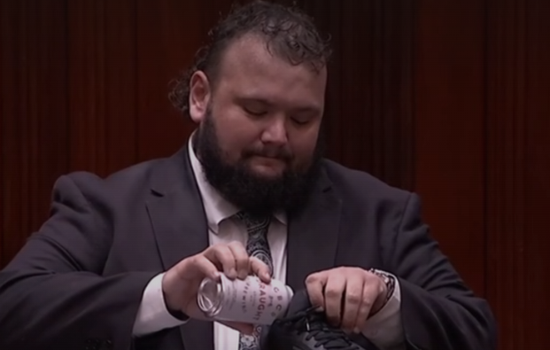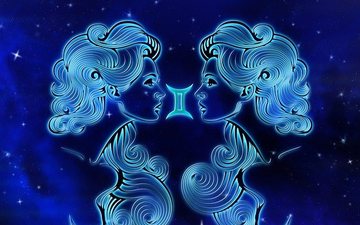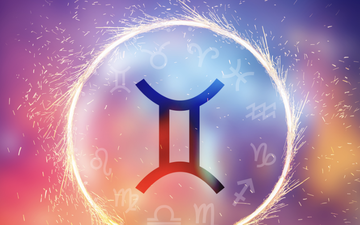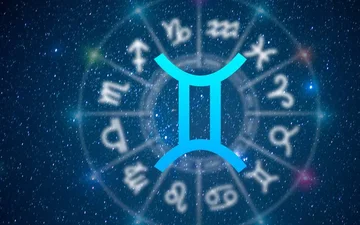
Zamira Kita, invited to "Night with Aulona", spoke openly about the dark period of her life. She dwelled on postpartum depression as well as thoughts of harming herself.
"One problem I discussed (was) the depression I went through after giving birth. I chose to share it with the public and I did it with full awareness, because there are many women who go through it and they should know that they want their time to pass", she said, emphasizing that it lasted 40 days.
"It is a fight that you will fight yourself and you will let time pass", said the actress, adding that nothing helped her. "Maybe the psychologist would have helped me, but I was at a stage where I couldn't listen to anyone and I couldn't communicate with anyone. I was closed in on myself".
Zamira said that no one believed her during this period and that the people close to her thought that she was pampered. "Even Ben (husband), no matter how much he tried to believe me, he still thought I was exaggerating," she underlined.
The actress said that at that time she got out of her routine and that the relationship with her husband was not like before. Zamira stated that she fell ill during that period and that only the mother of a friend visited her and advised her family members to take care of her.
The actress admitted that there were moments when she thought of harming herself. Asked by Aulona, ??Zamira said that "yes, she had thought" of something like that.
"The only thing that calmed me down was this solution, since when I thought about it, I said that I had a way out. It calmed me down and I thought that at least the pain would end. I didn't have physical pain, but an anxiety that suffocated me", continuing that she understands very well people who go through depression, whether it is postpartum or not.
Zamira said that these people need people close to them, to love them, to find them and lighten their burden, to show them that they will get through such a period.
She said that for 40 days she could not make her daughter happy, because she did not know what scared her. Then, gradually, he began to sleep, since he could not do so before. The actress shared that when she slept for just 5 minutes at her mother's house, she realized that her mind was reacting and began to hope for recovery.
"A little tears, a little strain, insomnia, but it will pass," she said, saying the episodes never happened again.
Postpartum depression not only affects women, but also men.
Some signs to look out for in postpartum depression in women are:
Making a decision seems terrifying
Mothers affected by postpartum depression constantly feel that their decisions regarding the child may harm the child. They are terrified of making decisions and feel they are not doing a good job.
I don't sleep even when the child sleeps
Most new mothers do not get enough sleep in the first months after giving birth. But in the case of postpartum depression, mothers often do not sleep even when the baby sleeps, and the lack of sleep brings new problems.
You feel sad and stressed all the time
Experts say that it is normal that in the first weeks after birth, the mother feels somewhat upset, cries or feels stressed. But if this condition continues for a longer time, it means that you may be dealing with postpartum depression.
You think you might hurt yourself or the baby
Even if you never intend to do such a thing, but these thoughts cross your mind, it is a sign that you should talk to a doctor. Of course, you may be embarrassed to talk to someone else about these thoughts, but immediate help is a must, both for you and for your child and family.
As for postpartum depression in men, it is very common. Depression of young fathers is an existing problem and there are many such cases in the world. In recent years, cases of men suffering depression after becoming parents have increased by 68%.
Having a baby brings radical changes in your lifestyle, even if you didn't give birth yourself. In women, the fluctuating hormone levels and neurochemical changes that occur in the brain play a major role. But in fact, a study by the "American Journal of Human Biology" has shown that even men experience hormonal disorders after the birth of a child. Lower testosterone levels can increase the risk of depression and anxiety.
Add to this other consequences such as chronic stress, irregular nutrition and lack of sleep, they also have every possibility of going through an episode of depression, which can even turn into chronic depression if careless.
But it's not just hormonal changes that play a role in postpartum depression in men. One of the factors is the feeling of separation from the mother and the child, since in many cases the father is left out of the main processes of the baby's growth. It is very important that the father is given the opportunity to bond with the child and feel useful in caring for him.
Above all, the pressure of anti-parenting culture can make anyone feel inadequate. High expectations for mom and dad to care for the child in a certain way are usually far removed from the reality of a life of sleeplessness, malnutrition, and confusion, where parents find it extremely difficult to do everything perfectly, with all the burden that suddenly comes into their lives.
Suggested articles:





